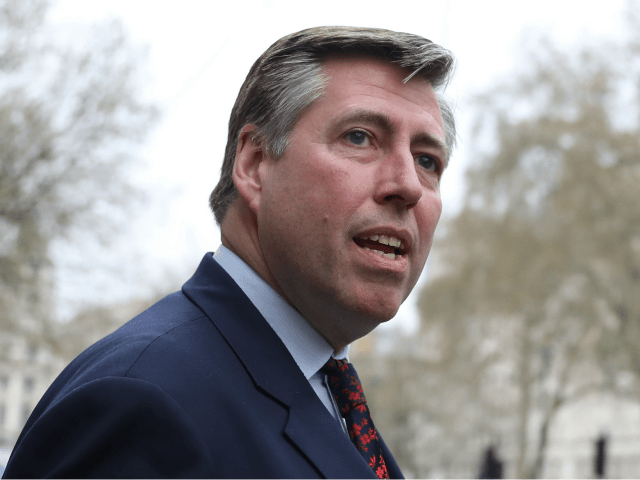Senior Conservative Party backbenchers are calling on Prime Minister Theresa May to limit the controversial Irish backstop to one year or remove it completely from her Withdrawal Agreement with the EU.
The call is being headed by the chairman of the influential 1922 Committee, Sir Graham Brady, who is set to table an amendment to Mrs May’s EU-approved Withdrawal Agreement that would alter or remove its Irish “backstop”.
The backbench chief achieved a minor victory in late January when an amendment he tabled calling for “alternative arrangements to avoid a hard border” between the Republic of Ireland, an EU member-state, and Northern Ireland, one of the United Kingdom’s four Home Nations, was passed by the House of Commons.
Speaking on the support found for his Brady Amendment, Sir Graham told The Sun, “My amendment on January 29 demonstrates that a majority can be found for the Withdrawal Agreement, as long as the backstop cannot be a permanent state,” he said.
In its current form, the backstop is not time-limited, and the British would not be allowed to leave it without the EU’s permission — a key stumbling block for Brexiteer MPs who might otherwise give it their reluctant backing as a temporary measure.
“It is difficult to see how introducing a bill in exactly the same shape as the current Withdrawal Agreement could secure a majority, as it has already been rejected three times,” Brady added.
“So I have urged the Government to build on the success of my amendment by incorporating the necessary reassurance about the backstop on the face of the bill.”
The news comes after reports that Mrs May is considering a fourth vote on her deal, perhaps as early as next week, and that it may be loaded with incentives to attract support from the left-liberal Opposition and more of her own eurosceptic MPs, including protection of workers’ rights and technology to keep the Irish border ‘open.’
The backstop, which was supposedly inserted into the treaty to prevent a so-called “hard border” for customs between Northern Ireland and the Republic of Ireland, remains the main obstacle to her deal being passed in the House of Commons.
Tory Brexiteers and Northern Ireland’s Democratic Unionist Party (DUP) warn that, under the deal, the backstop would come into force at the end of its so-called transition period if the border issue is not resolved during it, threatening the British Union between mainland Great Britain and Northern Ireland by causing them to diverge on customs and regulation.
The EU has maintained that they will not renegotiate the backstop and a spokesman for Theresa May also claims that changes are not possible.
However, ITV’s political correspondent Robert Peston has revealed that sources told him the Prime Minister “is giving serious consideration to introducing the Withdrawal Agreement Bill to the Commons but with the Northern Ireland backstop stripped out — in the hope it shows, like the Brady amendment, that her Brexit would be approved without it.”
The DUP has said that no backstop is needed for Northern Ireland and the Republic of Ireland to maintain the Good Friday Agreement, which a customs border would supposedly threaten, as goods with different excise duties and Value Added Tax (VAT) rates move between them on a daily basis without the need for border checks already.

COMMENTS
Please let us know if you're having issues with commenting.